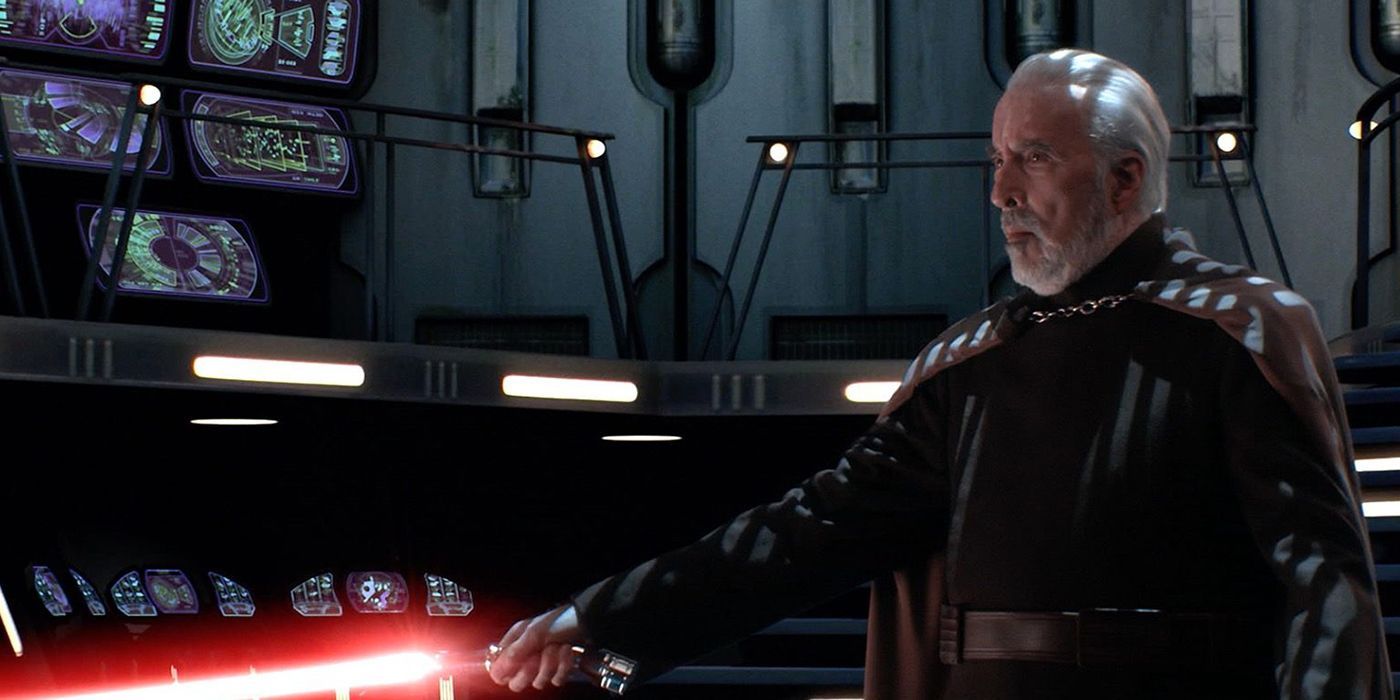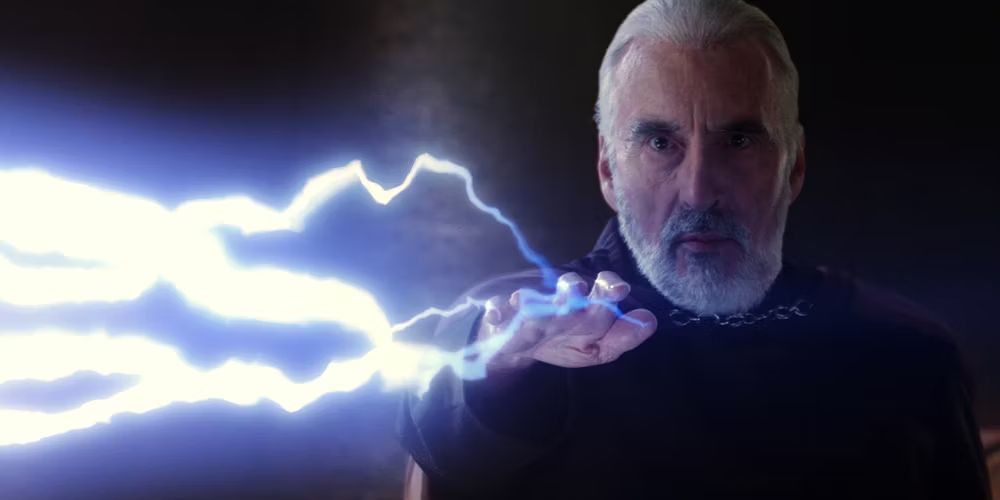In Star Wars: Attack of the Clones and Revenge of the Sith, Christopher Lee suited up as the villainous Count Dooku, who played a pivotal role in Anakin Skywalker’s fall to the dark side. While Dooku was certainly evil — and even had a Darth sobriquet, Tyranus, that he rarely used — he was never quite a Sith, at least not in the true sense. Unlike those who espoused the Sith doctrine, Dooku wasn’t motivated by hatred or fear, but by the same purpose that drove him as a Jedi. Dooku even tried to spare Obi-Wan Kenobi on two occasions, and bring him to his cause.
Count Dooku abandoned a career as a seasoned Jedi to pursue his own political beliefs. After leaving the Jedi Order, Dooku found his way to the dark side, and Darth Sidious, the future Emperor Palpatine. Convinced he could not realize his big-picture ambitions with the Jedi Order, Count Dooku turned to a haven for troubled minds with large-scale goals: the Sith. Dooku recognized that, on some level, he had simply traded one corrupt council for another. In doing so, he risked never getting out from under the forces that oppress him and the people they “serve.”
Dooku Wanted to Destroy the Sith and the Jedi with Obi-Wan
Dooku was not one for bloodlust. Instead, he attempted to convince Obi-Wan in Attack of the Clones that the Jedi Order was more complicated than he may think: The Jedi are just as much the enemy as Darth Sidious, at least in Dooku’s mind. He was forthcoming, sharing that hundreds of members of the Republic were working for the Sith Lord. But Obi-Wan was resolute in his belief that the Jedi were dedicated to good deeds, with honorable members who were neither corrupt nor greedy. Obi-Wan, thus, turned down Dooku’s offer to destroy the Sith and Jedi together.
Hoping that Obi-Wan would change his mind, Dooku was disappointed to find where the Jedi’s loyalties were. Count Dooku’s vision of the future was one in which the Empire would have a Sith army to maintain order. An efficient, and universal, set of laws enforced by lightsaber-wielding Force users would eliminate the need for negotiating with corrupt politicians and crime lords. He was desperate to live in a galaxy that was pure and peaceful, and free of immoral beings.
In the novelization of Revenge of the Sith, by Matthew Stover, Dooku spoke with Darth Sidious about the possibility of Obi-Wan joining their ranks. Dooku argued that having a well-respected Jedi such as Obi-Wan on their side would bring legitimacy to their cause, and wash away any doubts the integrity of this New Order. Much to Dooku’s dismay, Sidious dismissed the idea, knowing that Obi-Wan was too strong in his convictions to be swayed to the dark side. The Jedi of far more value to indoctrinate was Anakin Skywalker. It’s fair to say, Count Dooku’s grandfatherly interest in Obi-Wan disturbed Sidious. He saw Dooku as too sentimental and weak, and, therefore, questioned his resolve as a Sith. Although Palpatine told Dooku the plan was for Obi-Wan’s death to be used as leverage to turn Anakin, this was not the case at all. Sidious wanted Anakin to kill Dooku. The killing of a powerful Sith such as Dooku was the tipping point to set Anakin on track to the dark side.
Count Dooku Never Had the Motivations of a Sith
A master swordsman, talented negotiator and sentimental former Jedi Master, Dooku met his demise because of empathy for his Padawan’s Padawan. Despite Dooku’s two attempts to save him from Order 66 and the Sidious-led empire, Obi-Wan remained a faithful Jedi until the day he died. Dooku believed he was building toward a better future for the galaxy. He sacrificed his way of life to pursue what he thought was the only path to a pure civilization. He was motivated by passion, empathy and justice. Dooku compared Obi-Wan to a grandson, and displayed kindness toward him. Palpatine, on the other hand, is a textbook narcissist with an ego that rules his decisions. He was the true Sith in the room when his apprentice died, not Count Dooku.
Perhaps we would have seen a quiet and prosperous rule under the capable minds of a Dooku-Kenobi partnership. Or maybe Dooku would have grown greedy from wielding so much power. It’s difficult to speculate how events might have unfolded differently. Regardless, Count Dooku died with honorable intentions, and made for a truly tragic villain.











